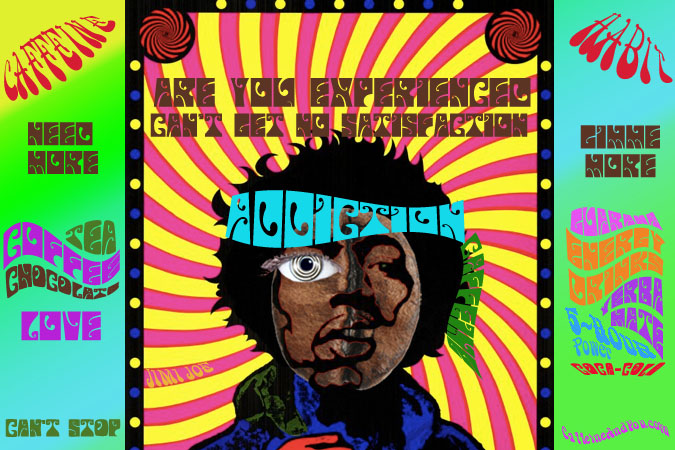 If you consume caffeine every day, in a regular fashion, you’ve either got a habit or are addicted – pick the term you prefer.
If you consume caffeine every day, in a regular fashion, you’ve either got a habit or are addicted – pick the term you prefer.
Experts quibble over whether to call caffeine addictive or just habit-forming. The difference is somewhat a matter of semantics, but not entirely.
An addiction suggests self-destructive behavior, one that poses a threat to individuals or society, as in a heroin or cocaine addiction. For most of us, caffeine doesn’t match that type of downward spiral. Caffeine’s generally not emotionally or physically destructive, though it can be in some people, and that’s when experts consider it an addiction.
Caffeine does act like other addictive substances by tripping the reward and pleasure circuits of the brain (which explains a lot about its popularity). It is undeniably habit-forming, but most of us don’t experience adverse effects from typical doses. Caffeine can even have benefits, such as lifting depression and reducing certain cancer risks, or enhancing certain mental and physical tasks.
Whatever you call it, if you’re hooked on caffeine, don’t panic: clinically speaking, caffeine is only mildly addictive or habit-forming. Most people can easily quit caffeine, if they survive the withdrawal stage. Though intense, withdrawal symptoms typically pass in a matter of days.
How has your caffeine consumption changed? If you do have a caffeine habit, chances are you now take in more caffeine than when you first started. That’s normal. It’s known as developing tolerance. When you hit that sweet spot of daily consumption, not too strong or too weak, you’ve found your setpoint, which is covered in Chapter 7.
So if you do have a caffeine jones, relax. You’re in good company. But if you’ve not developed or don’t want a caffeine habit, some experts say there’s no reason to start one.
Caffeine: Deep Addiction or Mild Dependency?
It’s not easy to tell if someone’s on caffeine.
Caffeine’s not like alcohol; it may elevate your mood, but people don’t get giddy or use it to escape from their troubles. Caffeine doesn’t make you slur your words or walk funny.
It’s typically used to sustain or enhance functionality. We trust our lives to people on caffeine: airline pilots, teachers, firefighters, even the President of the United States. In dangerous situations, we might even prefer that these people be on caffeine, to boost their alertness and performance.
Caffeine is also self-regulating, as discussed earlier, which prevents most of us from spiraling into dramatically destructive scenarios. Once our hands start to shake, we turn off the caffeine tap.
True enough. But caffeine does have a real effect on reward circuits of the brain, one that is consistent with addiction. Breaking the caffeine habit includes the same physical and mental withdrawal symptoms that define a substance as addictive. When your hands shake, yet you’re still pouring caffeine, that’s a sign your habit is out of control.
Let’s revisit what caffeine does to our neural wiring: Caffeine stimulates dopamine, a source of feel-good effects. According to some experts, it does so in areas of the brain separate from where cocaine and harder stimulants activate the neural wiring. So, caffeine activates some reward circuits, but it may do so in a manageable way.
Perhaps it’s best to view caffeine as a mildly addictive substance, one that presents benign effects or adverse risks, depending on the user and quantity ingested. And keep in mind that caffeine is biphasic: low to moderate doses create profoundly different effects from those of high doses.
Symptoms of Caffeine Addiction
What are the symptoms of caffeine addiction? As the next section shows, there is a beast known as Caffeine Use Disorder, and you only need three symptoms to qualify…
